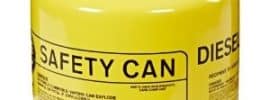
You want your workers to be safe — of course you do. But it isn’t just compassion that makes workplace safety important. Non-fatal workplace injuries hurt your business and your bottom line, too. In fact, it’s been estimated that employers pay out … [Continue reading]






